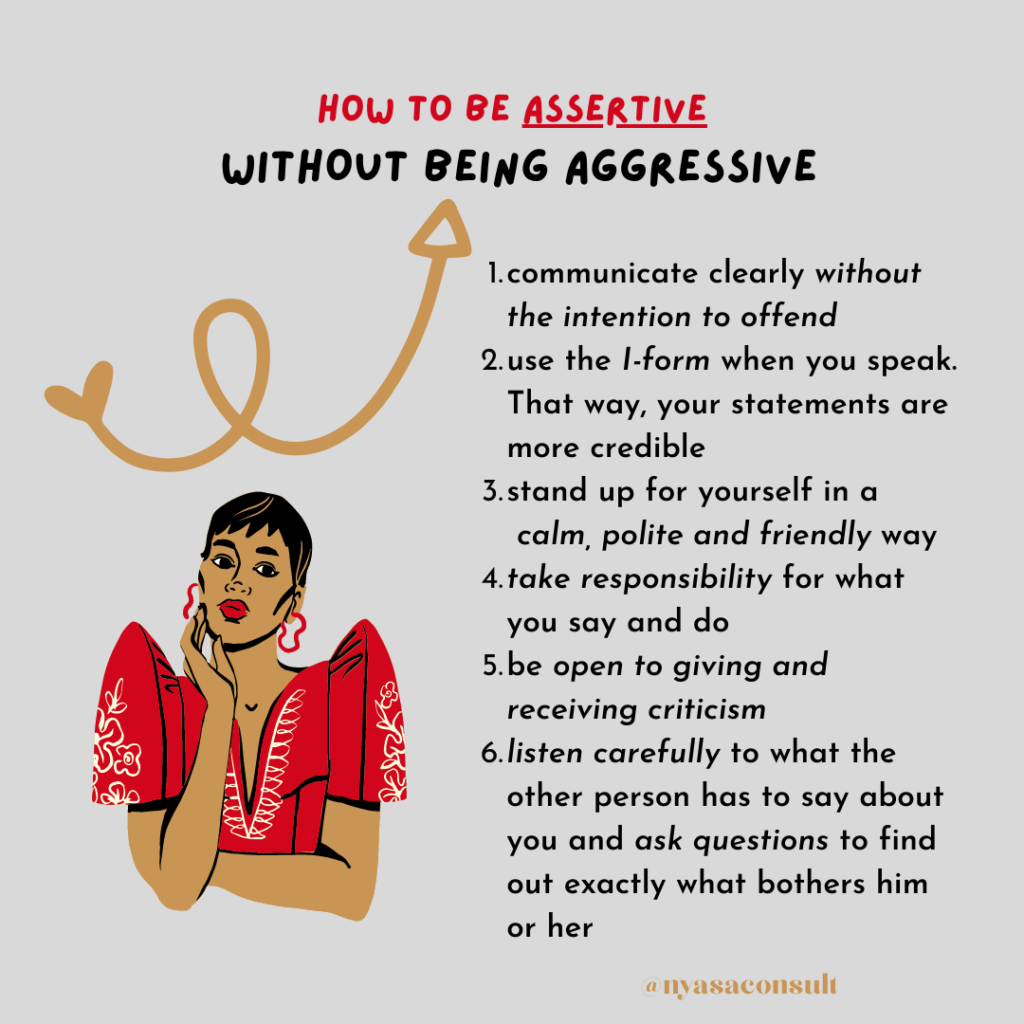
When you ask what you want, you are more likely to get it. Sounds simple, doesn’t it? However, according to the Dutch psychologist Carola Van Dijk, it remains a daily struggle for many. Fortunately, you don’t have to be born with assertiveness, you can learn to be assertive!
Note: Assertiveness isn’t the same as aggressiveness. That minor difference makes a big difference. Aggressive behavior always has a repulsive effect on the relationships around you, which is disastrous for your overall well-being. Decades of research into a long and happy life has shown that relationships with the people around you are the most important key to happiness and well-being. Assertive behavior, on the other hand, strengthens those relationships instead of repelling them, which works to your advantage – whether they’re close friends, casual acquaintances, or distant colleagues.
The best way
As is often the case, the basic principles of human behavior are the best way to go about assertiveness. In this context, that means: to communicate clearly without the intention to offend. This way of communication is not submissive or resigned, but not aggressive either. This assertive attitude may not come naturally to all, but as has been mentioned already, it can be learned! Assertiveness is extremely important and useful in both large and small everyday events and encounters. And – conversely – a lack of assertive behavior can quickly make your life miserable and unpleasant. For instance, many people are scared to speak up and stand up for themselves as they find it difficult to open up, to say what they think/feel and what they want. Being assertive makes them feel vulnerable, while in reality, it only strengthens their self-esteem which they can build up on.
I-form
An assertive person commands the respect from others as he/she takes responsibility for the statements made, and actions taken. Someone who says what he wants, and why he wants it, appears more reasonable than someone who puts forward his own beliefs as if they were absolutely valid rules or standards. The use of language therefore plays an important role that should not be underestimated while learning to be assertive. There is a big difference between someone who says he has to go home because he has so much to do and someone who says he wants to go home because he needs a quiet evening. Someone who expresses his wishes will be respected more in the long run. That is why it is so important that you use the I-form when you speak. That way, your statements are more credible, and you come across as much more sympathetic.
Arrogant?
Even though it is better to be guided by what you want or think than by what others want from you. Does that mean that you run the risk of leaving an arrogant impression? Not really. The most important thing is to stand up for yourself in a calm, polite and friendly way. There is nothing wrong with that and you cannot be blamed for that. Pretty soon others will see that you take responsibility for what you say and do, and they will appreciate your honesty and discernment. That also applies to situations when you criticize others. Most of the times, people have a hard time not only giving comments – whether positive or negative – but also receiving comments can be challenging for many. However, giving and receiving comments is an important part of assertive behavior.
How to deal with criticism?
First of all, it is important to try to relax physically. Don’t see the other person’s criticism as a rejection of your personality. If it’s not clear to you what exactly is bothering the other person, ask questions until you know. Ask for examples and possibly suggestions. Finally, decide for yourself what to do with it. Know that this is completely within your control. And what about unfair criticism? If you think the other person’s criticism stems from his or her own frustrations, that’s no reason to immediately counterattack. Listen carefully to what the other person has to say and ask questions to find out exactly what bothers him or her.
